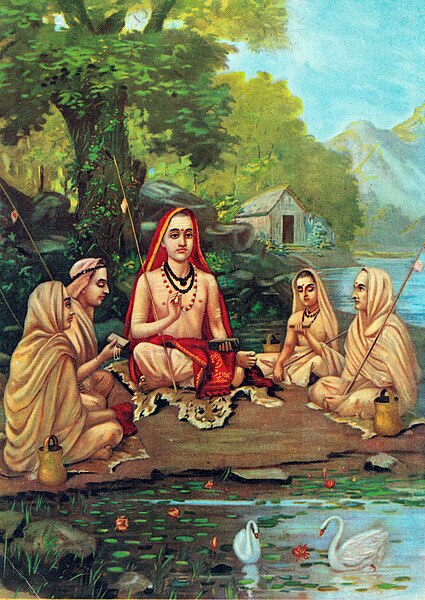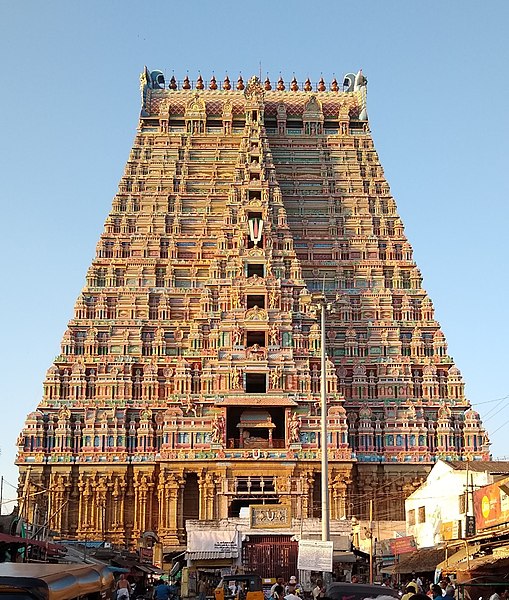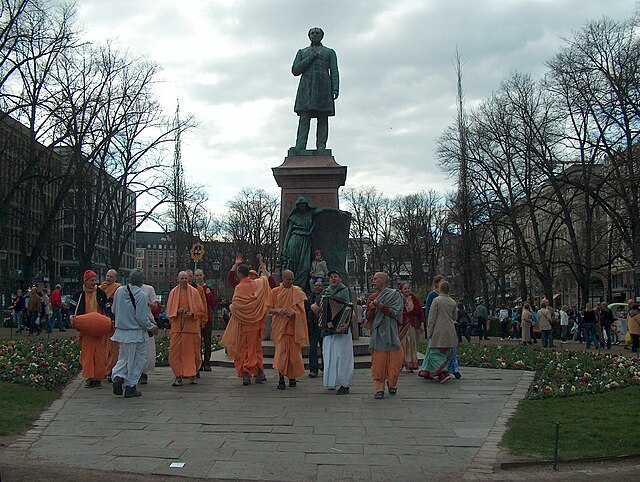Advaita Vedanta is a Hindu-tradition of textual exegesis and philosophy and a Hindu sādhanā, a path of spiritual discipline and experience. In a narrow sense it refers to the scholarly tradition belonging to the orthodox Hindu Vedānta tradition, with works written in Sanskrit, as exemplified by the Vedic scholar and teacher (acharya) Adi Shankara ; in a broader sense it refers to a popular medieval and modern syncretic tradition, blending Vedānta with Yoga and other traditions and producing works in vernacular.
Adi Shankara, the most prominent exponent of Advaita Vedānta tradition.
A drop merging in the Ocean, an analogy for the Jivatman merging into Brahman
The swan is an important motif in Advaita. The white colour of swan symbolises Sattva gun & the ability to discern Satya (Real, Eternal) from Mithya (Unreal, Changing), just as the mythical swan Paramahamsa discerns milk from water.
Ramana Maharshi, the Indian sage who is widely regarded as a Jivanmukta
Hinduism is an Indian religion or dharma, a religious and universal order by which its followers abide. The word Hindu is an exonym, and while Hinduism has been called the oldest religion in the world, it has also been described as sanātana dharma, a modern usage, based on the belief that its origins lie beyond human history, as revealed in the Hindu texts. Another endonym for Hinduism is Vaidika dharma.
Srirangam Ranganathaswamy Temple dedicated to the Hindu deity Vishnu is said to be worshiped by Ikshvaku and the descendants of (Ikshvaku Vamsam).
Hindus in Ghana celebrating Ganesh Chaturti
Swami Vivekananda was a key figure in introducing Vedanta and Yoga in Europe and the United States, raising interfaith awareness and making Hinduism a world religion.
The Hare Krishna group at the Esplanadi Park in Helsinki, Finland








